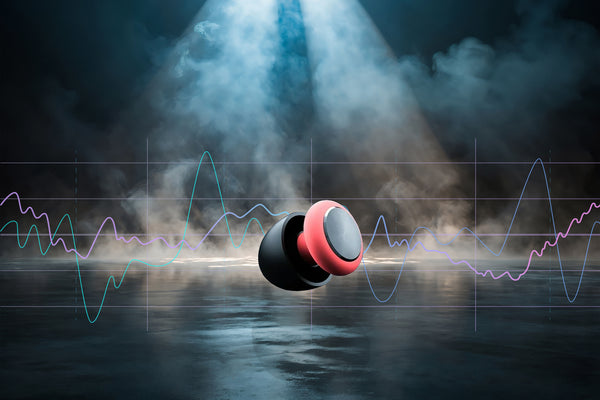How to Recognize the Early Signs of Hearing Damage (Before It’s Too Late)
Hearing Loss Doesn’t Happen Overnight—But the Signs Are There
Hearing damage isn’t always sudden—it builds up over time. Many people don’t realize they’re losing their hearing until it’s too late, because the early signs are subtle, gradual, and easy to ignore.
The good news? If you catch hearing damage early, you can take steps to prevent further loss and protect your ears. Here’s what to look out for and how Spares High Fidelity Earplugs can help you preserve your hearing for years to come.

The Early Warning Signs of Hearing Damage
- Ringing in the Ears (Tinnitus) – Even if the ringing fades, it’s a sign that your ears have been exposed to dangerous noise levels.
-
Sounds Seem Muffled – If conversations or music don’t sound as crisp as they used to, your ears may already be affected.
-
Needing to Turn Up the Volume – If your TV, phone, or car stereo is suddenly set higher than before, that’s a red flag.
-
Struggling to Hear in Crowded Places – Difficulty following conversations in noisy environments means your ears aren’t processing sound like they used to.
- Feeling “Fullness” in Your Ears After Loud Events – A sign that your ears are overworked and possibly damaged.
If you’ve noticed any of these signs, it’s time to start protecting your hearing before the damage becomes permanent.
The Biggest Hearing Loss Myths (And the Truth)
❌ “I’ll know when my hearing is getting worse.”
✅ Reality: Most people don’t notice the damage until 30-50% of their hearing is already gone.
❌ “My ears feel fine now, so I’m okay.”
✅ Reality: Just because the ringing stops doesn’t mean no damage was done—it’s a sign of exposure.
❌ “Loud music is only a problem for old people.”
✅ Reality: Noise-induced hearing loss is affecting younger people more than ever, thanks to concerts, earbuds, and high-noise work environments.
How to Protect Your Hearing Before It’s Too Late
-
Use Spares High Fidelity Earplugs – Lowers dangerous noise levels without distorting music or voices.
-
Follow the 60/60 Rule – Keep headphone volume below 60% and listen for no more than 60 minutes at a time.
-
Take Listening Breaks – Give your ears time to recover after loud events.
- Get Your Hearing Checked – A baseline test can help detect early damage before it’s noticeable.
Don’t Wait Until It’s Too Late
The worst part about hearing loss? Once it’s gone, it’s gone. But with the right protection, you can keep enjoying music, conversations, and everyday sounds for life.
Listen smarter. Protect your hearing. Grab Your Spares today!

